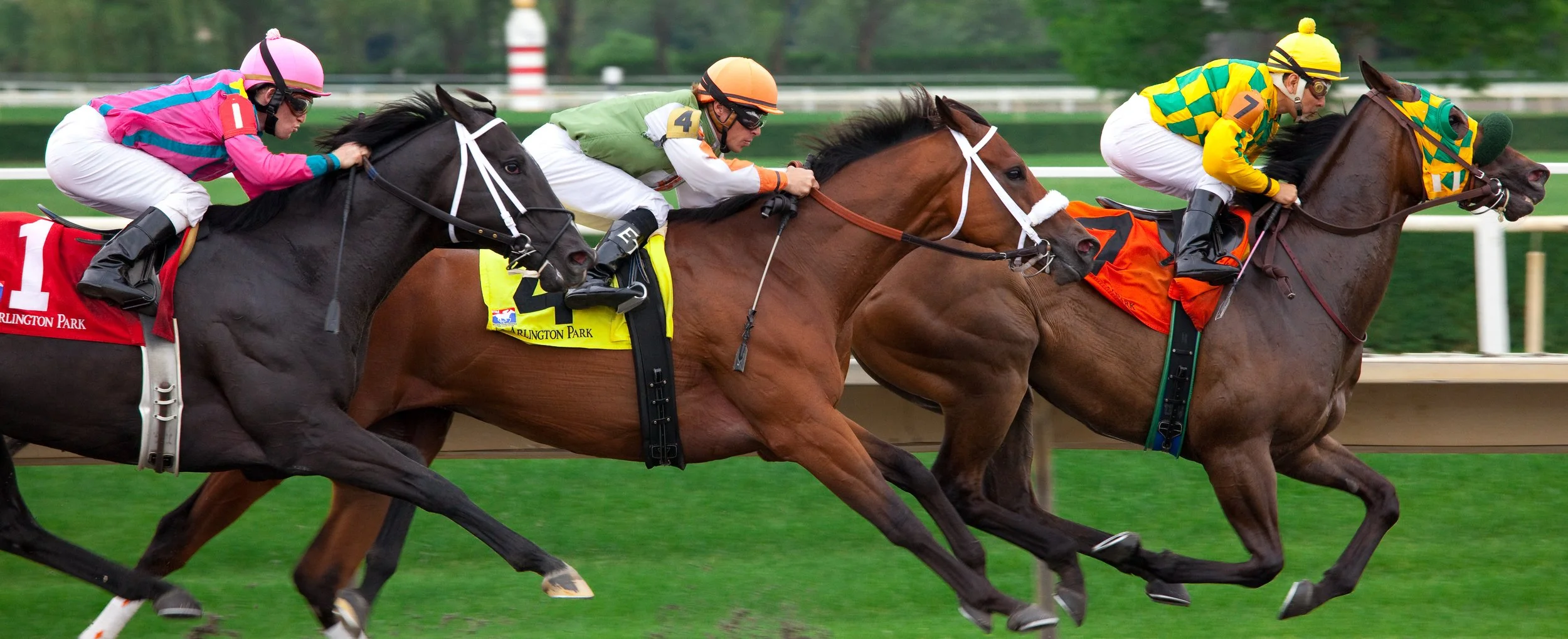By: Amanda Stubblefield, Staff Member
On Sunday, October 28th, racing commences at Churchill Downs, and in approximately two weeks, one of the most lucrative events in horse racing, the Breeders' Cup, will take place. Unfortunately for Texans, it may be the last time they can use the Internet to bet on these out-of-state races.
In the horse racing industry, advance deposit wagering (ADW) is the "fastest growing segment" of parimutuel betting.[1] ADW is a mechanism for placing bets where people can place funds into an account and "place wagers via telephone, mobile device, or through the Internet."[2] With ADW comprising an increasingly large part of the industry, companies are aware of the importance of being able to offer their ADW services to as many potential customers as possible. Therefore, after Texas decided to start enforcing its law which prohibits a person from accepting "in person, by telephone, or over the Internet, a wager for a horse race... conducted inside or outside" the state,[3] Churchill Downs was quick to file suit to protect its interests.
On September 21, 2012, Churchill Downs Incorporated (doing business as Twinspires.com) filed suit in the Western District of Texas against the Executive Director, Chuck Trout, and other members of the Texas Racing Commission.[4] Churchill Downs is seeking declaratory and injunctive relief and has framed their complaint around an interesting constitutional doctrine, the dormant Commerce Clause.
Congress has enormous power under the Constitution to "regulate Commerce with foreign Nations, and among the several States, and with the Indian Tribes."[5] The United States Supreme Court has construed the commerce power broadly to prohibit state laws and regulations that burden interstate commerce, even in the absence of congressional action. In order to be successful on their merits, Churchill Downs will have to prove either: (1) the Texas Racing Act's prohibition is discriminatory and thus invalid, unless it advances a legitimate local purpose that could not be adequately served by a reasonable nondiscriminatory alternative, or (2) that even though the discrimination is only incidental, the burden imposed on interstate commerce is clearly excessive in relation to the putative local benefits.[6]
Although Churchill Downs appears to have a strong argument, Texas appears to be the "odds on favorite" in this litigation. Churchill Downs' argument will likely encounter three major problems: the federal government appears to have given the states wide latitude in regulating horse racing, the broad application of the Texas Racing Act which bands internet gambling on horse races instate as well as out-of-state, and the states' traditionally strong power in regulating moral and social issues. If Texas prevails, Churchill Downs and other companies operating ADW systems will likely be significantly burdened by this prohibition.
Nevertheless, one thing you
can
bet across the board, all in the industry will be watching this litigation, and Churchill Downs, as well as their competitors, have a lot to lose in the Texas market.
__________________________
[1] Churchill Downs, Inc., Annual Report (Form 10-K), 6, (Mar. 13, 2008),
available at
http://www.sec.gov/Archives/edgar/data/20212/000119312508055581/d10k.htm.
[2]
Id.
[3] Tex. Rev. Civ. Stat. Ann. art. 179c,
§ 11.01(a) (West 2011).
[4] Churchill Downs (dba Twinspires.com) v. Trout, et. al., 1:12-cv-00880-LY (W.D. Tex. filed Sep. 21, 2012).
[5] U.S. Const. Art. 1,
§ 8, cl. 3.
[6] Dep't of Revenue of Ky. v. Davis, 553 US 328, 339-40 (2008).







